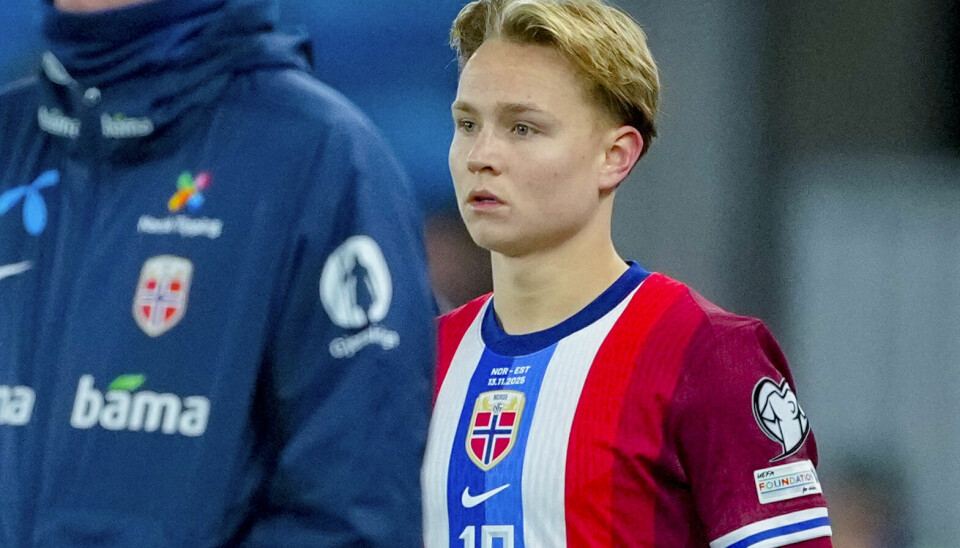 Just days after Norway stunned Europe with a resounding 4–1 victory over Italy to secure a direct ticket to the 2026 World Cup, one of their players — Andreas Schjelderup — suddenly became the center of media attention when he appeared in a Copenhagen courtroom and received a two-week suspended prison sentence.
Just days after Norway stunned Europe with a resounding 4–1 victory over Italy to secure a direct ticket to the 2026 World Cup, one of their players — Andreas Schjelderup — suddenly became the center of media attention when he appeared in a Copenhagen courtroom and received a two-week suspended prison sentence.
The incident unfolded at a moment when morale within the squad was soaring after their historic qualification, and the 21-year-old’s punishment immediately ignited intense debate surrounding the off-field challenges young talents face while navigating fame, pressure, and the harsh glare of the spotlight.
According to court records in Copenhagen, Schjelderup admitted to receiving and forwarding a 27-second Snapchat video when he was just 19 and playing for Nordsjaelland in the Danish Superliga. What made the case significantly more serious was the content of the video, which involved two teenagers under the age of 18.
He deleted the clip shortly after realizing what it contained — but as Judge Mathias Eike emphasized, “a completed act cannot be undone with a deleted message.”
Prosecutors initially pushed for a minimum of 20 days in jail. After evaluating the full circumstances, however, the court handed down a two-week suspended sentence along with a 12-month probation period — meaning Schjelderup will avoid jail time unless he commits another offense within the next year.

His lawyer, Anders Nemeth, said the defense was still considering whether to appeal, although he acknowledged the verdict was “fair in proportion to the severity of the case.”
On November 8, just before the hearing, Schjelderup posted a personal apology on Instagram, calling his actions “stupid” and affirming he was “ready to face the consequences.” He also urged others not to watch or share harmful or degrading content.
“I know the behavior I’m convicted of does not reflect who I truly am or the values I stand for,” he wrote.
The apology drew a wide range of reactions. Some expressed sympathy for a young player who made a poor decision at 19, while others argued that professional footballers — especially national team players — must recognize the responsibility and influence that come with their platform.
Schjelderup currently plays for Benfica, one of Europe’s most storied clubs. President Rui Costa publicly stated that the club would support him throughout the legal process.
Sources in Portugal say that internally, the case is viewed as a personal mistake — serious, but not something that will jeopardize his long-term future at the club, so long as he complies with all legal requirements moving forward.

Despite the ongoing legal situation, Schjelderup was still called up by coach Ståle Solbakken for Norway’s World Cup 2026 qualifying campaign. He remained on the bench during the decisive match against Italy on November 17, watching as Erling Haaland and the rest of the squad delivered one of Norway’s most electrifying performances in decades.
A 4–1 demolition. A direct ticket to the World Cup for the first time in more than twenty years.
Italy — the EURO 2020 champions — now staring at the possibility of missing a third consecutive World Cup.
As Norway celebrated wildly after the match, the news of Schjelderup’s suspended sentence added an unexpected layer to the narrative. Some analysts called it “sensitive timing,” noting that off-field drama could affect the image of a team on the rise.
With eight caps for his national team, Schjelderup remains one of Norway’s brightest young prospects. Once considered a rising star in the Danish Superliga before moving to Benfica, his talent is not in question.
Experts agree that a suspended sentence does not mean his career is over — but it does mark a pivotal moment that may force him to reassess his choices during a critical stage of his development.
Commentators in Norway point to the pressures of early success, sudden fame, and the inherent risks of navigating social media — factors that can easily lead young athletes into unintended trouble.

As European football witnesses the rapid rise of players aged 18–22, Schjelderup’s case underscores an urgent issue: young footballers must be equipped not only to excel on the pitch but also to handle the pitfalls of fame, digital life, and legal responsibility.
Still, sports psychologists note that Schjelderup’s willingness to accept responsibility, apologize publicly, and refrain from denial is a promising sign. Many believe that with proper support, he can recover, rebuild his image, and continue pursuing his full potential — especially with the World Cup 2026 now within reach.




